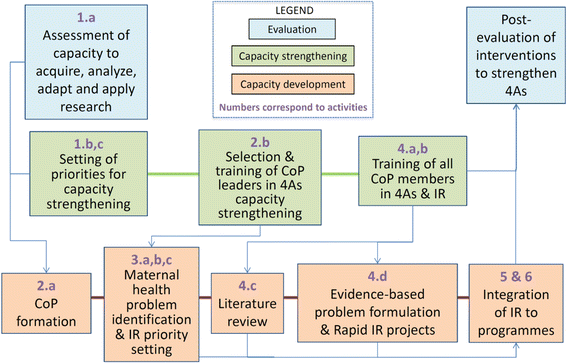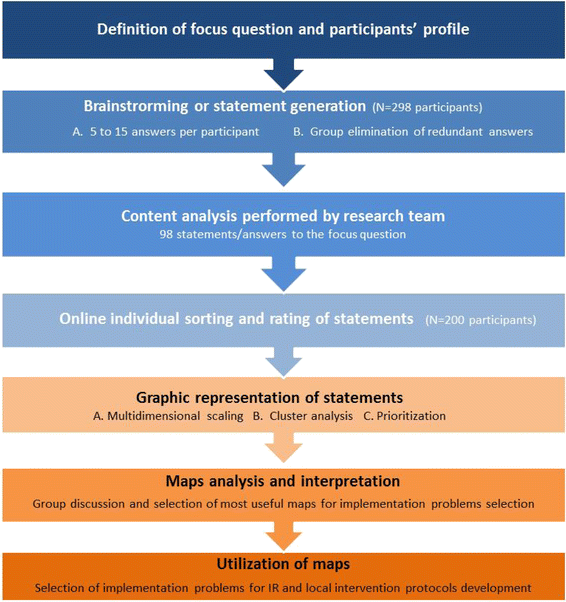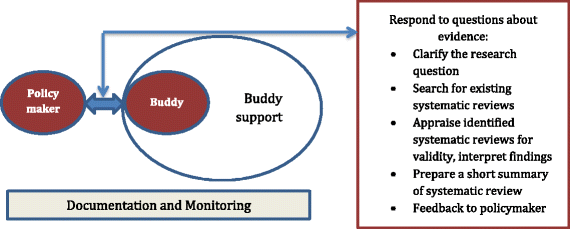Enhancing evidence informed policymaking in complex health systems: lessons from multi-site collaborative approaches
- PMID: 26983405
- PMCID: PMC4794922
- DOI: 10.1186/s12961-016-0089-0
Enhancing evidence informed policymaking in complex health systems: lessons from multi-site collaborative approaches
Abstract
Background: There is an increasing interest worldwide to ensure evidence-informed health policymaking as a means to improve health systems performance. There is a need to engage policymakers in collaborative approaches to generate and use knowledge in real world settings. To address this gap, we implemented two interventions based on iterative exchanges between researchers and policymakers/implementers. This article aims to reflect on the implementation and impact of these multi-site evidence-to-policy approaches implemented in low-resource settings.
Methods: The first approach was implemented in Mexico and Nicaragua and focused on implementation research facilitated by communities of practice (CoP) among maternal health stakeholders. We conducted a process evaluation of the CoPs and assessed the professionals' abilities to acquire, analyse, adapt and apply research. The second approach, called the Policy BUilding Demand for evidence in Decision making through Interaction and Enhancing Skills (Policy BUDDIES), was implemented in South Africa and Cameroon. The intervention put forth a 'buddying' process to enhance demand and use of systematic reviews by sub-national policymakers. The Policy BUDDIES initiative was assessed using a mixed-methods realist evaluation design.
Results: In Mexico, the implementation research supported by CoPs triggered monitoring by local health organizations of the quality of maternal healthcare programs. Health programme personnel involved in CoPs in Mexico and Nicaragua reported improved capacities to identify and use evidence in solving implementation problems. In South Africa, Policy BUDDIES informed a policy framework for medication adherence for chronic diseases, including both HIV and non-communicable diseases. Policymakers engaged in the buddying process reported an enhanced recognition of the value of research, and greater demand for policy-relevant knowledge.
Conclusions: The collaborative evidence-to-policy approaches underline the importance of iterations and continuity in the engagement of researchers and policymakers/programme managers, in order to account for swift evolutions in health policy planning and implementation. In developing and supporting evidence-to-policy interventions, due consideration should be given to fit-for-purpose approaches, as different needs in policymaking cycles require adapted processes and knowledge. Greater consideration should be provided to approaches embedding the use of research in real-world policymaking, better suited to the complex adaptive nature of health systems.
Keywords: Capacity strengthening; Communities of practice; Complex health system; Decision making; Embedded research; Evidence-informed policy; Health policy; Health systems research; Low- and middle-income countries; Policymaking; Systematic reviews; Use of evidence.
Figures
References
-
- Syed SB, Hyder AA, Bloom G, Sundaram S, Bhuiya A, Zhenzhong Z, Kanjilal B, et al. Future Health Systems: Innovation for Equity. Exploring evidence-policy linkages in health research plans: a case study from six countries. Health Res Policy Syst. 2008;6:4. doi: 10.1186/1478-4505-6-4. - DOI - PMC - PubMed
-
- Daire J, Gilson L, Cleary S. Developing leadership and management competencies in low and middle-income country health systems: a review of the literature. 2014. http://resyst.lshtm.ac.uk/sites/resyst.lshtm.ac.uk/files/docs/reseources.... Accessed 21/01/2015.
-
- de Savigny D, Adam T. Systems thinking for health systems strengthening. Geneva: Alliance for Health Policy and Systems Research; 2009. p. 107.
Publication types
MeSH terms
Grants and funding
LinkOut - more resources
Full Text Sources
Other Literature Sources
Miscellaneous




